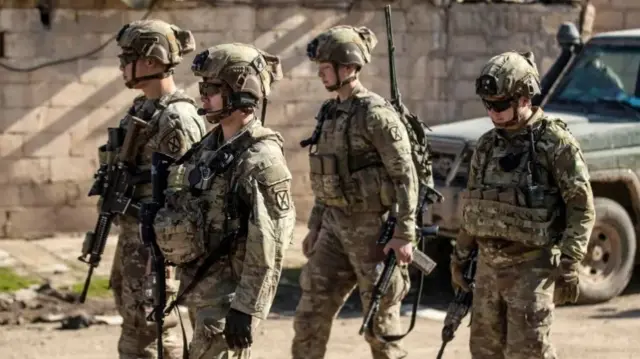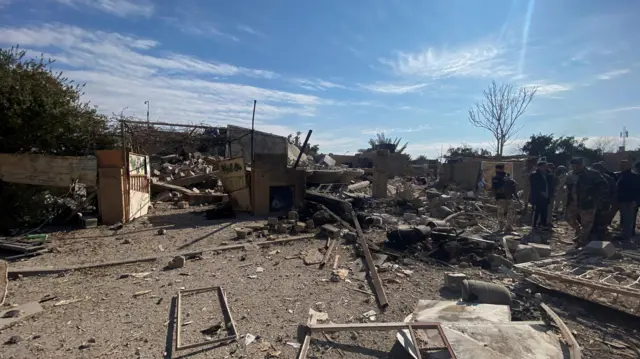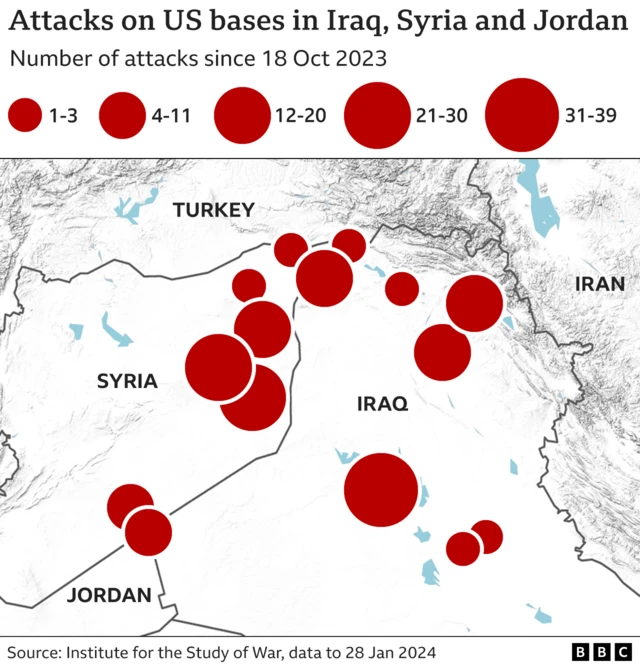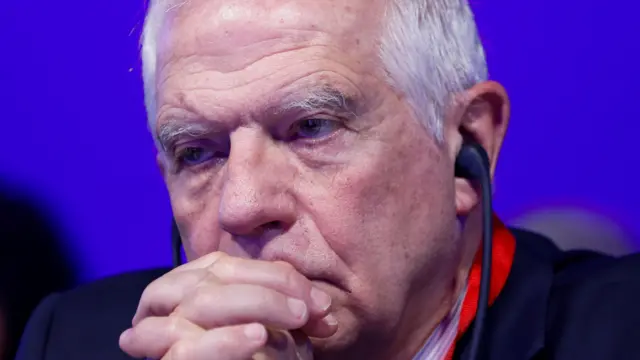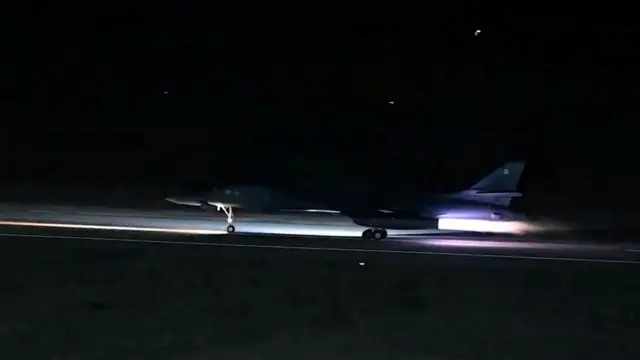What's been happening?published at 12:50 GMT 3 February 2024
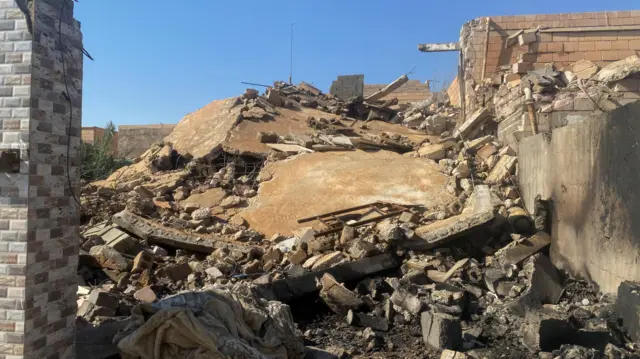 Image source, Reuters
Image source, ReutersThe ruins of a building at the site of a US strike in al-Qaim, Iraq
For those of you just joining us, here's a summary of the main developments since the US launched strikes overnight in Iraq and Syria.
US: The US struck 85 targets in response to last Sunday's deadly drone attack on a US military base, with US President Joe Biden warning: "If you harm an American, we will respond"
The White House has blamed an Iran-backed militia umbrella group for the attack that killed three US soldiers
Syria: Damascus says a number of people have been killed and wounded in the strikes, and has also said the US "occupation" of Syrian territory "cannot continue"
Iraq: The Iraqi government has said at least 16 people, including civilians, have been killed by the strikes and 25 others wounded. Baghdad also accuses the US of putting Iraq and the region on "the brink of the abyss"
Iran: A spokesperson for the foreign ministry in Tehran has "strongly" condemned the US strikes as violations of "sovereignty and territorial integrity"
EU: Without addressing the action directly, EU foreign policy chief Josep Borrell has called on all parties to avoid an "explosive" escalation in the Middle East
UK: Meanwhile, the UK government has declared support for America's right to respond to attacks - calling the US a "steadfast" ally

